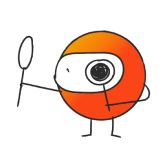
Automation Solution Architect
Automation Solution Architects are the ones defining the architecture of the automation solution and choosing the technology stack for the development and operationalization of the solution. They're also the ones overseeing the development and implementation stages.

Analyze and improve the technical architecture of processes before automation.
Work with the Business Analyst and the Automation Developers to sign off on the business automation and technical requirements.
Design automation solutions using UiPath and other relevant technologies and document them in the relevant documents (e.g., Solution Design Document).
Decide on the development methodologies and best practices.
Oversee the development of the automation projects and components according to the solution design and requirements.
Oversee the testing, deployment, hypercare, and monitoring stages.
Review the crucial pieces of code and facilitate knowledge transfer in the project team.
Robotic Process Automation (RPA) and business automation.
The UiPath Automation Implementation Methodology.
Knowledge of all the components of the UiPath Platform and the way they are integrated.
UiPath templates e.g., the UiPath Robotic Enterprise Framework.
UiPath solution accelerators, available on the UiPath Marketplace.

There are two paths to Automation Solution Architect: one involving outstanding Automation Developers with UiPath, the other with Solution Architects already experienced in other technologies.
Automation Developers with UiPath can become Automation Solution Architects after having relevant development experience with complex automation projects. Ideally, these would be certified as Advanced Automation Developers and work several years in enterprise scenarios involving multiple applications and environments, as well as many of the UiPath components.
Solution Architects coming from outside the field of automation need to have at least 1 year experience as Solution Architects, have a good understanding of at least one programming language such as VB.NET, C#, and a good grasp of the typical business processes inside a company.
As an Automation Solution Architect, you will design the solution and manage low and medium-complexity automation projects involving a limited number of applications and environments. The scenarios will be mainly implemented with the core RPA capabilities of the UiPath Platform and with small teams of up to 6 Automation Developers.
As a Senior Automation Solution Architect, you can expect to design the solution and manage the development of complex automation scenarios, involving many applications and environments. Apart from core RPA capabilities, the implementation will require many if not all the components of the UiPath Platform and the implementation team will consist of many developers of different seniority levels and specializations.
As an Enterprise Automation Solution Architect, your focus will be more on how the automations, the development solutions and the environments are used in the most effective ways. You can expect to do more high-level work and engage with the stakeholders to plan the next steps and scale the automation practice in the company.

If you don't have prior experience as a Solution Architect, check out the journey for the Automation Developer.
The Automation Solution Architect learning plan: find out about the components of the UiPath Platform, the UiPath Automation Implementation Methodology, then dive into the different stages.

